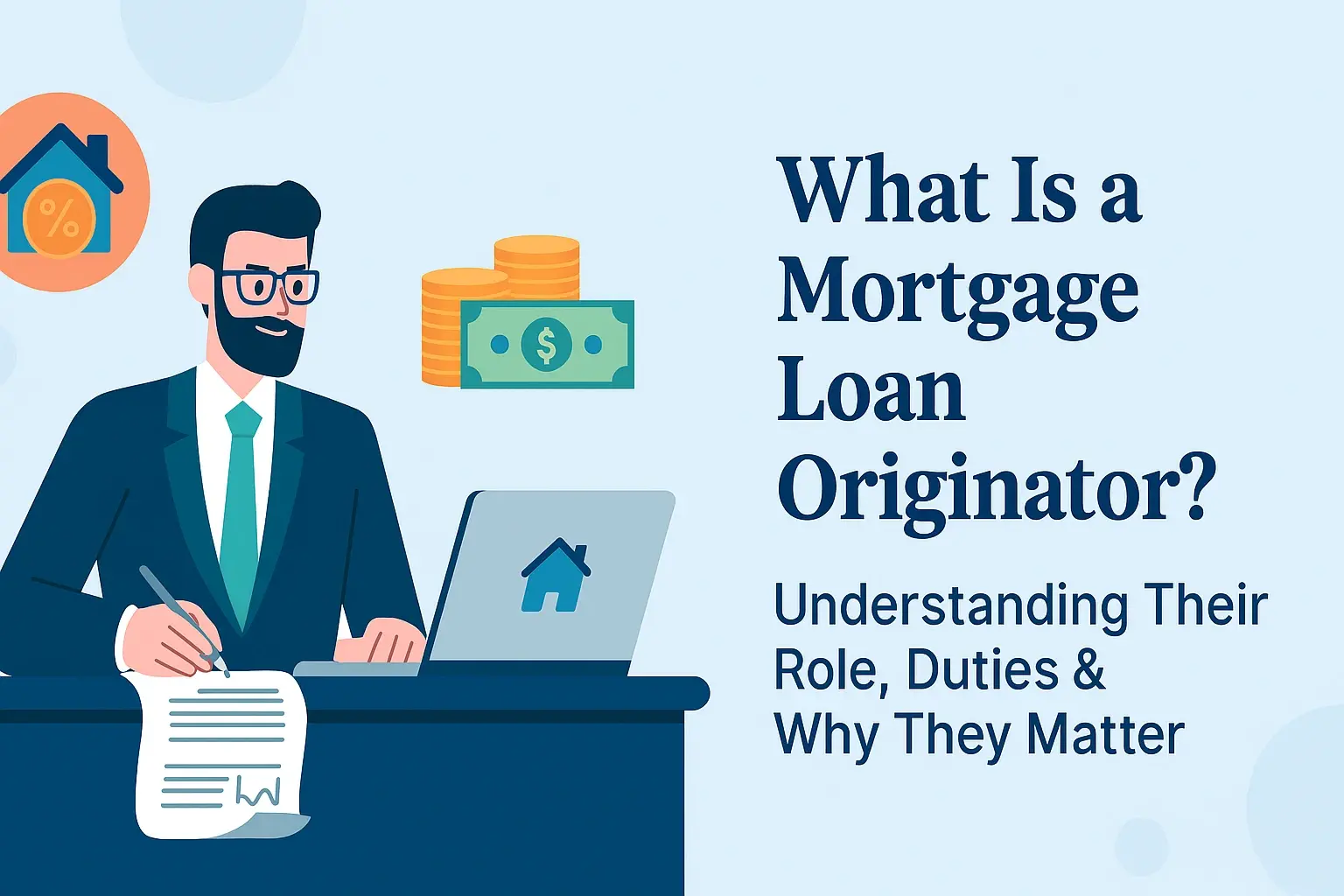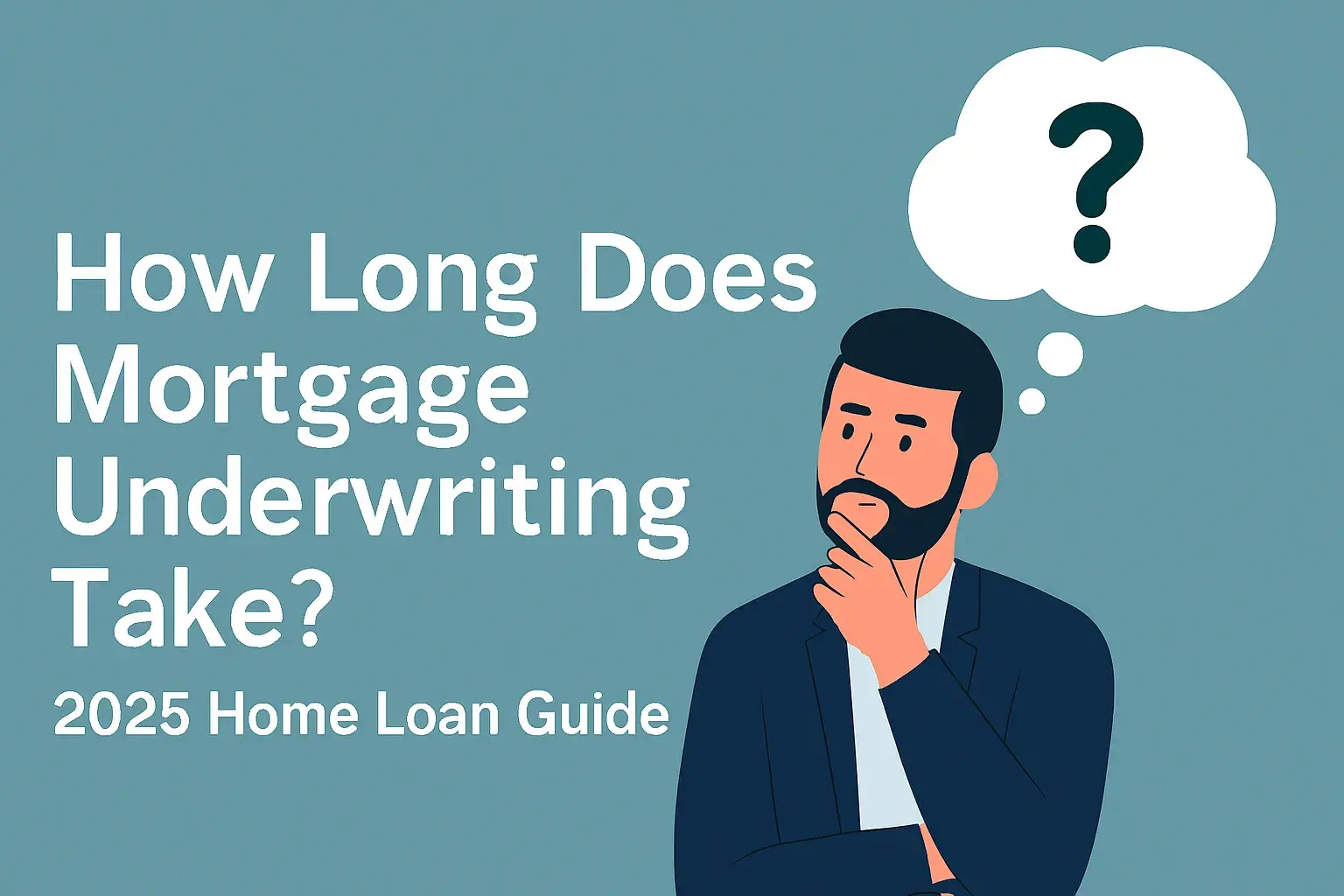-
Posted on: 18 Nov 2025

-
When you're planning to buy a home, one of the most important professionals you’ll interact with is a Mortgage Loan Originator (MLO). Whether you're purchasing your first house, refinancing your current mortgage, or exploring home loan options, the MLO plays a central role in guiding you through the complicated world of home financing. But what exactly does a mortgage loan originator do, and why are they such an important part of the mortgage process?
In this detailed guide, we break down everything you need to know about Mortgage Loan Originators, their responsibilities, qualifications, and how they help borrowers secure the right home loan.
What Is a Mortgage Loan Originator (MLO)?
A Mortgage Loan Originator (MLO) is a licensed professional responsible for helping borrowers apply for, secure, and close on home loans. They act as the main point of contact between the borrower and the mortgage lender.
Their primary role is to originate the mortgage—meaning they collect your financial information, evaluate your needs, and begin the loan process from start to finish.
MLOs may also be called:
-
Loan Officers
-
Mortgage Loan Officers
-
Home Loan Specialists
-
Mortgage Consultants
Regardless of the title, their mission remains the same:
To help you qualify for the right mortgage and guide you through the entire home loan process.Types of Mortgage Loan Originators
Not all MLOs are the same. There are two main types you’ll encounter:
1. Bank or Direct Lender MLOs
These MLOs work for banks, credit unions, and financial institutions.
They offer only the mortgage products available within their institution.2. Mortgage Broker MLOs
These MLOs work for independent brokerages.
They shop around with multiple lenders to find a mortgage program that best fits the borrower’s needs.Both are licensed professionals, and both can help you get a mortgage—your choice depends on whether you prefer more loan options (broker) or a faster, in-house process (bank).
What Does a Mortgage Loan Originator Do?
A mortgage loan originator has several key responsibilities. Here’s a breakdown of what they do for borrowers:
1. Assess Your Financial Eligibility
The first step an MLO takes is evaluating your finances, including:
-
Credit score
-
Debt-to-income (DTI) ratio
-
Income and employment
-
Savings and assets
-
Credit history
This helps them determine what loan programs you may qualify for.
2. Recommend the Best Mortgage Options
Based on your financial profile, an MLO will present the loan options that suit your:
-
Budget
-
Credit situation
-
Home-buying goals
-
Down payment amount
Mortgage options could include:
-
FHA loans
-
Conventional loans
-
VA loans
-
USDA loans
-
Jumbo loans
-
Adjustable-rate mortgages (ARMs)
Their job is to help you pick the one that's best for you.
3. Collect and Verify Required Documentation
An MLO helps you gather all the necessary paperwork, such as:
-
Bank statements
-
W-2 forms
-
Pay stubs
-
Tax returns
-
ID and social security documents
-
Employment verification
They ensure all documents are complete, accurate, and ready for lenders.
4. Submit Your Loan Application
An MLO submits your completed application to the lender’s underwriting department, where your loan is reviewed for approval.
5. Communicate With Underwriters
Throughout the process, the MLO communicates with underwriters to:
-
Answer questions
-
Resolve documentation issues
-
Ensure the loan progresses on schedule
This step is crucial for maintaining a smooth and efficient mortgage process.
6. Assist With Pre-Approval
Before home shopping, an MLO helps you get pre-approved, giving you:
-
A clear idea of your budget
-
A competitive advantage with sellers
-
Confidence in your home-hunting journey
7. Guide You Through Closing
Finally, your MLO helps you:
-
Understand your closing disclosure
-
Review final loan terms
-
Prepare for signing day
-
Close on your home successfully
Once approved and funded, your mortgage is complete.
See More: How Does a Mortgage Loan Work? Your Ultimate 2025 Guide to Homeownership
Why Are Mortgage Loan Originators Important?
Buying a home is one of the biggest financial decisions you’ll make. An MLO ensures you don’t navigate the loan process alone.
Here’s why they are essential:
They simplify complex mortgage terms
MLOs explain loan jargon in simple language.
They help improve your chances of approval
They know what lenders look for and help you strengthen your application.
They offer personalized guidance
Your financial situation is unique, and an MLO tailors loan suggestions accordingly.
They coordinate between all parties
MLOs act as the bridge between borrowers, lenders, underwriters, and real estate agents.
They save you time and stress
Instead of dealing with lenders directly, you have an expert guiding you through the process from start to finish.
How Does Someone Become a Mortgage Loan Originator?
Mortgage loan originators must be licensed, and the process includes:
-
Completing pre-licensing education (typically 20 hours)
-
Passing the NMLS SAFE Act Exam
-
Undergoing background and credit checks
-
Registering with the NMLS (Nationwide Multistate Licensing System)
-
Completing annual continuing education
This ensures that MLOs are qualified, ethical, and knowledgeable.
How Much Does a Mortgage Loan Originator Cost?
Borrowers usually don’t pay MLOs directly.
Instead, they earn:-
A commission from the lender
-
A fee included in the closing costs (loan origination fee)
Origination fees typically range from 0.5% to 1% of the loan amount, though this varies by lender.
How to Choose the Right Mortgage Loan Originator
When selecting an MLO, consider:
Experience
Choose someone who has handled many loans like yours.
Loan options
A broker may offer more programs; a bank MLO offers in-house processing.
Communication style
You want someone who answers questions clearly and promptly.
Reviews and reputation
Check testimonials, ratings, and feedback online.
Transparency
A good MLO explains fees, terms, and requirements upfront.
The Difference Between a Mortgage Loan Originator and a Mortgage Underwriter
Many borrowers confuse the two. Here’s a simple explanation:
Role Mortgage Loan Originator Mortgage Underwriter Contact Works directly with borrowers Works behind the scenes Main Job Helps you apply, gather documents, and choose a loan Analyzes risk & decides approval Decision Power No authority to approve loans Approves or denies loans Final Thoughts
A Mortgage Loan Originator plays a crucial role in helping you navigate the home loan process. From evaluating your finances to helping you choose the right loan program and guiding you to closing, they ensure you make smart and informed decisions throughout your home-buying journey. Whether you're a first-time homebuyer or refinancing your existing property, working with a knowledgeable MLO can make the mortgage experience smoother, faster, and stress-free.
Call on (888) 803-7889 to get Credit Repair Services now!
null
Faq
1. Is a Mortgage Loan Originator a salesperson?
Partly, yes—but they are also financial advisors who help you secure the right mortgage.
2. Do I need an MLO to get a mortgage?
Yes. Most home loans require a licensed MLO to originate and submit your application.
3. Can an MLO help improve my credit for loan approval?
They cannot change your credit report but can guide you on what to fix.
4. Are MLOs and loan officers the same?
Yes. The terms are often used interchangeably in the mortgage industry.
-











